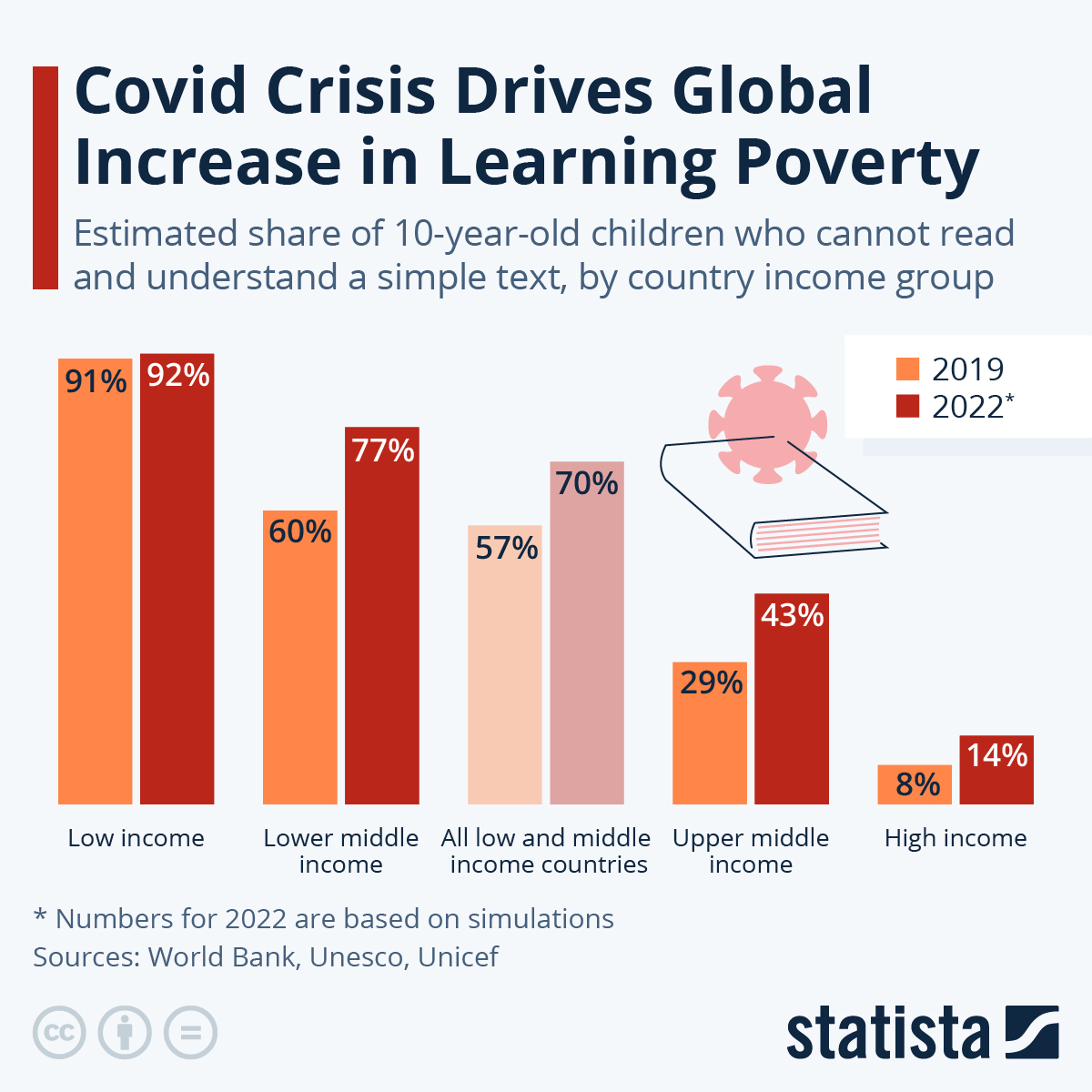Progress towards a more literate world has hit a huge roadblock in 2020, when Covid-19 disrupted education systems around the world. With more than a billion children affected by school closures and hundreds of millions cut off from remote learning programs, the pandemic has been an unprecedented shock to global education whose consequences will be felt for years.
"The State of Global Learning Poverty: 2022 Update", a joint publication of the World Bank, UNICEF, FCDO, USAID and the Bill & Melinda Gates Foundation in partnership with UNESCO tries to gauge the extent to which Covid has affected children’s ability to read, coming to the conclusion that the pandemic has made a pre-existing learning crisis even worse. The report finds that the learning poverty rate, i.e. the share of children who cannot read a simple text with comprehension by age 10, has risen across the globe between 2019 and 2022, climbing from 57 to 70 percent in all low- and middle-income countries.
“Even before Covid-19, the world was facing a learning crisis, with nearly 6 out of every 10 ten-year-olds in low- and middle-income countries suffering from learning poverty,” the report finds, calling for urgent action to be taken. “There is a narrow window to act decisively to recover and accelerate learning. The good news is that the core policies that can help recover learning lost to the pandemic will also address the deeper underlying learning crisis that predated Covid-19, accelerating learning and delivering long-term benefits for economies and societies.”




















